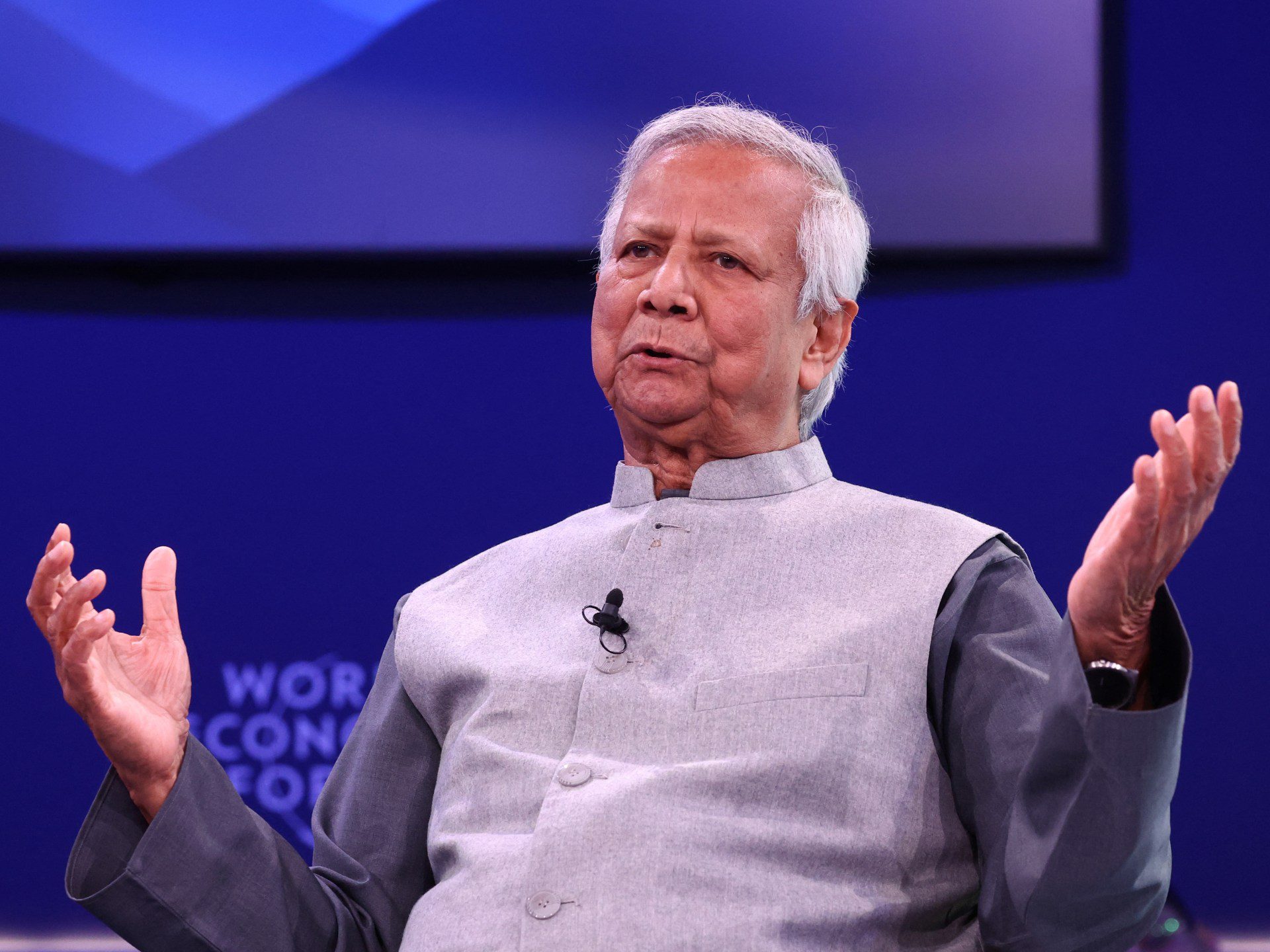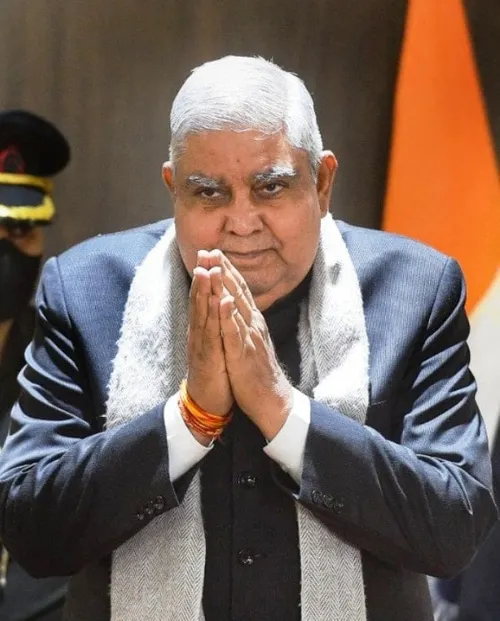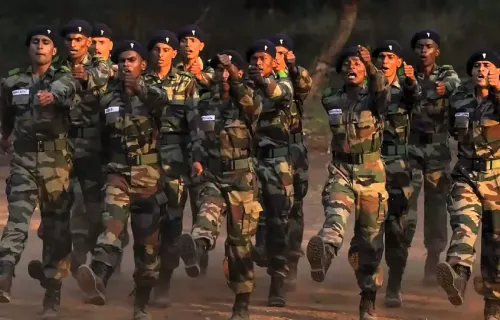On the surface, it was a routine closed-door meeting between Bangladesh’s interim leader and Nobel laureate Muhammad Yunus and the chiefs of the country’s three armed forces, to discuss law and order.
But the May 20 meeting came amid what multiple officials familiar with the internal workings of the government described to Al Jazeera as an intensifying power struggle in Dhaka. Portrayed in both social and mainstream media in Bangladesh as a “cold war” between the armed forces and the interim administration, these tensions now threaten the future of Yunus’s role, nine months after he took charge following the ousting of former Prime Minister Sheikh Hasina and the ruling Awami League.
Hasina fled to India in August 2024 amid a mass uprising against her 15-year-long rule, during which she was accused of orchestrating extrajudicial killings and enforced disappearances.
We unpack the latest tumult in Bangladesh, and what it means for the country’s fledgling efforts to return to electoral democracy.

Why are tensions mounting between the military and the government?
The Bangladesh Army has remained deployed since July 2024, following the mass protests that led to Prime Minister Sheikh Hasina’s ouster. Their continued presence was necessitated by the collapse of civilian law enforcement during the upheaval, including a nationwide police strike that left many stations abandoned and public order in disarray.
Although the police resumed operations in mid-August, the army’s presence has been maintained as part of a civil-military consensus, because of unrest in the country.
On Wednesday, Bangladesh’s army chief, General Waker-Uz-Zaman, publicly urged that national elections be held by December this year, warning that prolonged deployment of the army for civil duties could compromise the country’s defences.
According to a report by The Daily Star, General Waker told a high-level gathering at Dhaka Cantonment, “Bangladesh needs political stability. This is only possible through an elected government, not by unelected decision-makers.” The comments came during a rare address in which he delivered a 30-minute speech, followed by more than an hour of questions and answers. Officers from across the country and at Bangladeshi UN missions reportedly joined the event, both physically and virtually, in full combat uniform – a show of unity and resolve.
“The army is meant for defending the nation, not for policing … We must return to barracks after elections,” Waker was quoted in The Daily Star as saying.
His remarks indicate a difference of opinion with the Yunus administration’s stated intention of holding elections no earlier than mid-2026, to allow time for political and electoral reforms first, in order to ensure a fair election.
According to local media reports, Waker is also strongly opposed to key initiatives being considered by the interim government. On a proposed humanitarian corridor into Myanmar’s Rakhine State, he reportedly said: “There will be no corridor. The sovereignty of Bangladesh is not negotiable.” He warned that any such move could drag Bangladesh into a dangerous proxy conflict. “Only a political government elected by the people can make such decisions,” he said, according to the paper.
The army chief also voiced concern about making other decisions without an electoral mandate – including the potential foreign management of Chattogram Port, Bangladesh’s main seaport, and the launch of Starlink, Elon Musk’s satellite internet service – which he said could compromise national security. “The army will not allow anyone to compromise our sovereignty,” The Daily Star quoted him as saying.
His remarks came amid widespread speculation – still unaddressed by either the military or the government – that the Yunus administration had attempted to remove General Waker from his post last week. Though unconfirmed, the rumour has dominated public discourse and prompted questions about civil-military relations during the transitional period.
The timing, therefore, of General Waker’s assertive public statement – and its emphasis on constitutional process and national sovereignty – is widely viewed as a signal of growing unease within the military over the interim government’s expanding civilian initiatives, according to analysts.

Are there tensions with political parties as well?
Yes. Since its formation on August 8 last year, the interim government has faced escalating pressure from different sides. While the main opposition Bangladesh Nationalist Party (BNP) insists that national elections must be held by December, the National Citizen Party (NCP) – a student-led party formed earlier this year – and several other political groups argue that sweeping reforms and the prosecution of former Awami League (AL) leaders for killings resulting from the brutal crackdown on student-led protests last year must precede any election.
Bangladesh’s largest political party, the BNP, has launched a wave of protests over other demands as well, including that its candidate, who lost an allegedly rigged mayoral election in Dhaka on February 1, 2020, under the Awami League regime, be reinstated as mayor.
On Thursday, the BNP held a news conference demanding an election by the end of the year, as well as the resignation of two student advisers and the national security adviser. The party warned that without these steps, continued cooperation with the Yunus-led administration would become untenable.
On Saturday, Yunus is expected to meet with both the BNP and Bangladesh Jamaat-e-Islami (BJI), the largest Islamic political party in Bangladesh.
Is Yunus preparing to resign?
Amid this growing turbulence, speculation has intensified that Yunus may be preparing to resign. Local media began reporting that he had indicated that he intended to step down and address the nation in a televised statement, during a cabinet meeting on Thursday afternoon, following widespread social media chatter.
That evening, Nahid Islam – a student leader from the July uprising against the previous government and now head of the newly formed National Citizen Party (NCP) – met Yunus along with two student advisers to make an appeal for him to stay on.
After the meeting, Nahid confirmed to BBC Bangla that Yunus was seriously considering stepping down.
By Friday evening (13:00 GMT), sources within the interim administration told Al Jazeera that Yunus was still weighing his options.
However, two government sources said Yunus is likely to convene an emergency cabinet meeting on Saturday, during which he is expected to discuss the next course of action. One of the sources confirmed that Yunus’s resignation remains a possibility.

Why might Yunus want to resign?
Yunus is contemplating resigning because of intensifying political pressure, according to local media reports.
Two advisers quoted in the Samakal newspaper said Yunus told cabinet members on Thursday that the political parties and other government institutions had failed to deliver on promises to cooperate with the transitional government to implement state reforms and a peaceful democratic transition since the fall of Hasina’s government last year.
It had become impossible to carry out his responsibilities, he was reported as saying. Pressure is also mounting to hold an election. “The prospect of a fair election in the current situation is slim,” he said. He was concerned any election would be interfered with or rigged and he did not want to have to take responsibility for it.
Later on Thursday evening, Yunus met Information Adviser Mahfuj Alam, Local Government Adviser Asif Mahmud Shojib Bhuyain and NCP convenor Nahid Islam at his official residence, the Jamuna State Guest House in Dhaka.
Speaking to BBC Bangla afterwards, Nahid confirmed Yunus was considering resigning and quoted him as saying he felt “held hostage” by protests and political gridlock.
“I cannot work like this if you, all the political parties, cannot reach a common ground,” Nahid quoted Yunus as saying. He urged the interim leader to “remain strong”, stressing the hopes the public had pinned on him after the July uprising that ousted the Awami League government.
Meanwhile, Yunus’s ambitious reform agenda is reportedly faltering, with analysts noting that key arms of the state – including the police and civil bureaucracy – are increasingly slipping beyond the interim government’s control.
One striking example among many, they say, is a proposal to split the National Board of Revenue (NBR), the country’s authority for tax administration, overseeing the collection of income tax, value-added tax (VAT) and customs duties, into two separate entities – a move that the government says is aimed at enhancing efficiency and the integrity of Bangladesh’s tax system. This has been met with strong resistance from senior officials of the NBR over fears that experienced revenue officers will be sidelined.
What does the BNP want?
Speaking to Al Jazeera, BNP leader Amir Khasru Mahmud Chowdhury said his party does not want Yunus to resign. “Nobody asked for his resignation, and we do not want him to do so,” he stated.
“The people are waiting to cast their vote and bring back democracy. They have been deprived of this for nearly two decades,” said Khasru. “We expect him to go for a free and fair election and peacefully hand over power. That’s how he came in.”
He questioned the delay in setting an election timeline. “What is the wait for? This is something [about which] a very strong conversation is going on in the country.”
Khasru said the BNP wants the administration to move into caretaker mode – with a leaner cabinet and the removal of some controversial figures, particularly those with political ambitions or affiliations. “They have already floated a political party,” he said, referring to the student representatives. “Others made partisan statements. These should go if you’re serious about a credible election.”
He dismissed any contradiction between reforms and elections, saying both could move forward simultaneously. “Where there is consensus, reforms can be completed within weeks.”
Khasru also voiced confidence in the Election Commission and the role of the army in ensuring a fair vote. “This is not the era of Sheikh Hasina,” he remarked, suggesting a more conducive political environment for elections.
On the question of trying former Awami League leaders, he said judicial processes could continue in parallel. “The judiciary must do its job – the elected government will continue if more is needed.”
“BNP suffered the most under the previous regime,” he added. “The trials are a national consensus.”
BNP Standing Committee member Salahuddin Ahmed echoed this sentiment in a TV interview on Friday: “If Yunus is personally unable to carry out his duties, the state will find an alternative.” But he added: “As a globally respected figure, we hope he will understand the situation and announce an election roadmap by December.”
What do other political parties want?
NCP’s Senior Joint Convenor Ariful Islam Adeeb rejected the BNP’s narrative, telling Al Jazeera: “All parties were meant to support the interim government after the July uprising, but the BNP stuck to old tactics based on muscle power – that’s the root of the crisis.”
He urged unity, saying: “BNP and all other parties must come together for the national interest.”
Meanwhile, demonstrations and behind-the-scenes meetings continued across Dhaka. On Thursday evening, top leaders of five political parties, including the NCP, attended an emergency meeting at the headquarters of another Islamic political party, Islami Andolan Bangladesh (IAB), called by its chief Mufti Syed Muhammad Rezaul Karim.
They urged all “anti-fascist forces” to unite, defend national sovereignty, and support a credible election under Yunus after key reforms. Several of these parties, including BJI, argue that elections must come after key reforms – such as adopting a proportional voting system and ensuring accountability for past abuses – to prevent any repeat of past authoritarian practices. They believe holding elections without these changes would undermine public trust and risk another crisis.
BJI chief Shafiqur Rahman joined the IAB meeting via phone and endorsed the resolution. On Thursday, he urged Yunus to convene an all-party dialogue to resolve the crisis.
Then, on Friday night, BJI’s Shafiqur Rahman requested a meeting with Yunus, proposing to convene at 12:00 GMT (6pm local time) on Saturday.
Speaking to Al Jazeera on Friday night, NCP Joint Convenor Sarwar Tushar said: “Whatever the rumours, we believe Dr Muhammad Yunus is committed to his historic responsibility.
“There is massive expectation – both from the international community and the people,” he added.
While acknowledging political divisions, Tushar said: “If everyone moves beyond party agendas and focuses on a national agenda, the crisis can be resolved through dialogue.”
What can we expect next?
Political analyst Rezaul Karim Rony told Al Jazeera that talk of Yunus’s resignation may reflect growing frustration over the lack of unity within the transitional setup. “The unity that had formed around the post-uprising interim government appears to be weakening due to vested interests,” he said. “The resignation talk might be a signal underscoring the need to rebuild that unity.”
Rony suggested that certain government appointments may have alienated political parties, raising questions about whether some actors have agendas beyond the official reform mandate. “This could be one reason why the government is struggling to gain broad political cooperation and function effectively,” he noted.
Rony added: “At this point, advocating for elections may [make the administration] appear politically aligned with the BNP. But in the end, it should be up to the people to decide who they want to lead.”
NCP’s Nahid Islam, however, sees otherwise.
He warned in a Facebook post on Friday night: “There’s a conspiracy to sabotage the democratic transition and stage another 1/11-style arrangement.”
The term “1/11” refers to January 11, 2007, when the military-backed caretaker government took control in Bangladesh amid political chaos and ruled for two years, suspending democratic processes.
“Bangladesh has repeatedly been divided, national unity destroyed, to keep the country weak,” Nahid wrote.
Urging Yunus to stay in office and deliver on promises of reform, justice and voting rights, he said, “Dr Yunus must resolve all political crises while in office.”
He also outlined NCP’s demands: a timely July declaration, elections within the announced timeframe (Yunus has repeatedly promised that the election will be held between December 2025 to July 2026), a July Charter with core reforms before polls, visible justice for the July killings, and a roadmap for a new constitution through simultaneous elections to a Constituent Assembly and legislature.
Meanwhile, public anxiety is rising. On Friday, the Bangladesh Army issued a Facebook alert debunking a fake media release circulated a day earlier, which falsely used the military’s logo in what it described as “an apparent attempt to sow confusion and create rifts” between the armed forces and the public. “Do not believe rumours. Do not be misled,” the statement warned.
As the weekend approaches, all eyes are on Muhammad Yunus – and whether he will resign, stand firm, or forge a new consensus to lead the country through its second transition since last year’s dramatic uprising.
Anurag Dhole is a seasoned journalist and content writer with a passion for delivering timely, accurate, and engaging stories. With over 8 years of experience in digital media, she covers a wide range of topics—from breaking news and politics to business insights and cultural trends. Jane's writing style blends clarity with depth, aiming to inform and inspire readers in a fast-paced media landscape. When she’s not chasing stories, she’s likely reading investigative features or exploring local cafés for her next writing spot.






